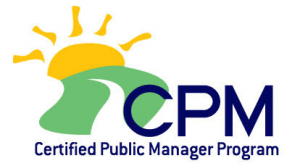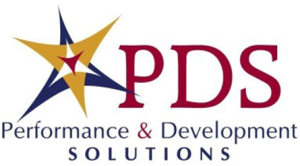
Listed below are some questions commonly asked about the Certified Public Manager® Program. If you have any additional questions, please contact PDS.
List items for CPM Commonly Asked Questions
"It is a big commitment, but managing a busy schedule, coordinating with coworkers, and delegating some tasks are part of the learning experience. Since we are given the class schedule for the entire program up front, it is easier to plan for the 2 days out of the office each month."
- Sam Hoerr, IPERS Bureau Chief (Cohort 6)
"As an Executive Officer, I do not manage people, but this program has broadened my perspective and my ability to work with others both within and outside my agency. You don't know what the future holds, but thankfully CPM has prepared me to manage and succeed in my future endeavors."
- Susan Khamtanh, Department of Revenue (Cohort 6)
"One of the main purposes of CPM is to give participants many opportunities to think about, debate, and discuss issues we all face in the workplace. This not only provides the chance to share ideas, but allows us to think in new ways and bring those ideas back to the workplace. Implementing ideas that have been successful elsewhere saves time and trouble for our organization."
- Nancy Berggren, Former Department of Administrative Services, Human Resources Enterprise, Chief Operating Officer (CPM 1)
"If you have your Master's degree-this represents an opportunity to couple your degree with a much more experiential based certificate that will allow you to develop application experiences for your workplace. Also, about 1/3 of the curriculum is not part of either an MBA or MPA. About 15 percent of our certificate seekers hold a masters degree and they report the CPM adds much value to their competencies. For those who earned their degree more than five years ago, the certificate also allows for updating of their education."
- Lance Noe, Drake University College of Business and Public Administration, Director of Professional Studies
"With over 300 contact hours of education, the cost boils down to just under $12/hour. Organizations may pay the enrollment fee as a one-time payment, or spread the cost over two fiscal years with 14 monthly payments of $250. Additional payment plans are also available upon request."
- Leslie Grefe, Former Performance & Development Solutions, CPM Program Coordinator
CPM sessions feature a blended format, with 2/3 of sessions meeting in-person on the Drake campus and 1/3 meeting virtually. Sessions that work best in a face-to-face setting will meet in person, while sessions that work well in a live/online format will enjoy the convenience of engagement from your home or office. This mix of online and on-campus sessions lowers travel costs and travel time commitments while providing face-to-face engagement.
Agencies are encouraged to honor the candidate's commitment to complete the CPM Program. The candidate must assume the responsibility for working out the arrangements between the two agencies including all financial commitments. The candidate must notify the CPM Program Coordinator of the arrangement.
Generally, the participant's organization will pay the enrollment fee and any additional expenses the participant may have to incur in order to participate in program (i.e. travel expenses). Please speak with your organization directly to determine how to handle payment for the program.
No, the interaction with other public sector employees in a team environment and the unique opportunities to translate management theory into management practice are invaluable. The field of management is ever changing. This program will strive to be relevant to today's issues and challenges.
Participants are required to attend all classes. If a situation occurs where you are not able to attend a class, this should be communicated to Lance Noe prior to the class date. You may then be able to coordinate a make up session or make up work to keep from falling behind the rest of the group. If absences are excessive, participants may be terminated from the program.
CPM is a very engaging experience both virtually and face-to-face on the Drake campus. Some elements of the CPM cohort take place online. Because of this, we ask that each CPM participant has access to a devise with a stable internet connection, a microphone, and acamera for virtual engagement. If that resource is not available to you, please contact kim.hanson@iowa.gov.
